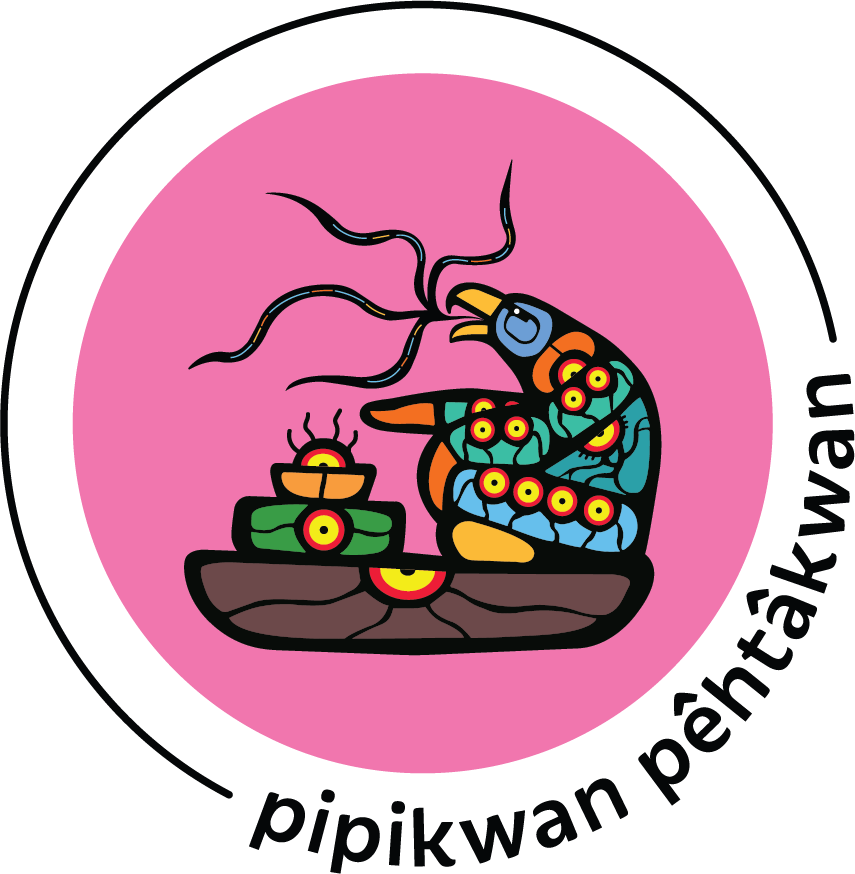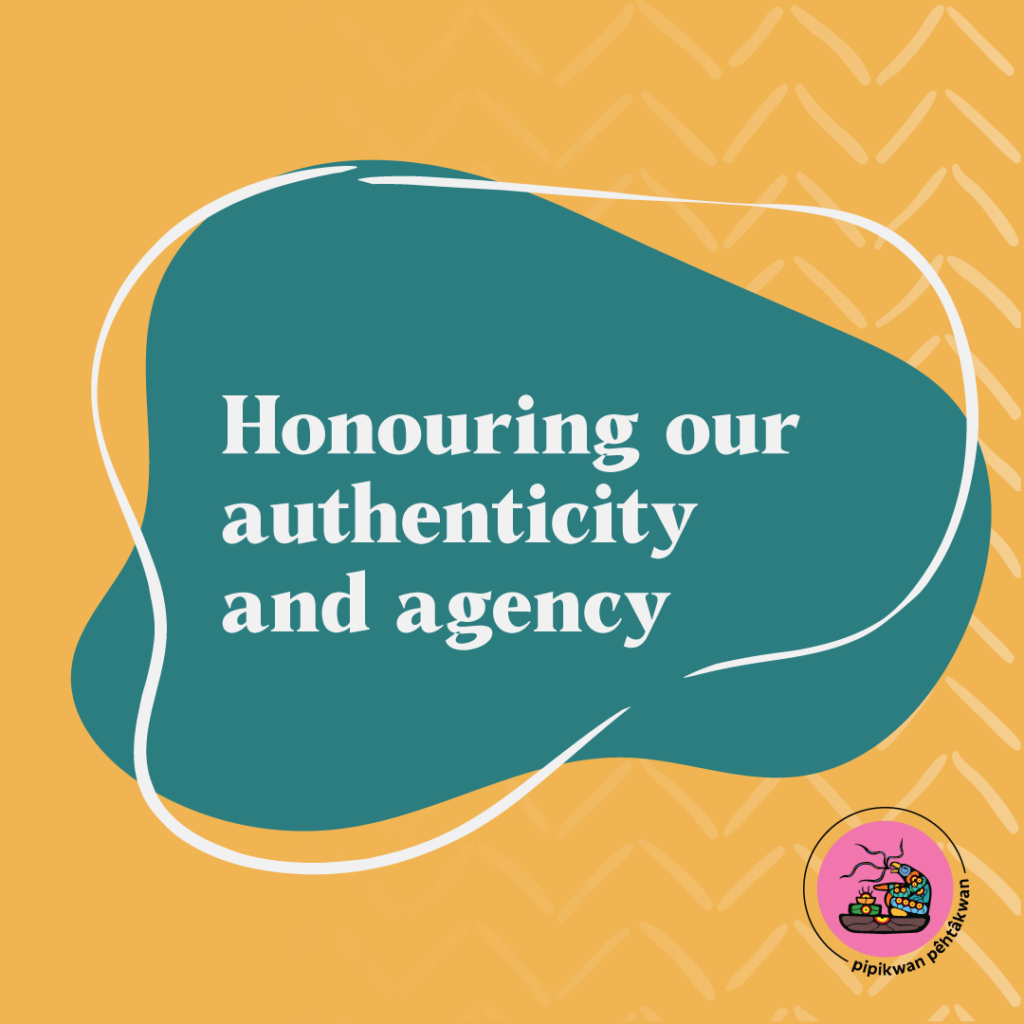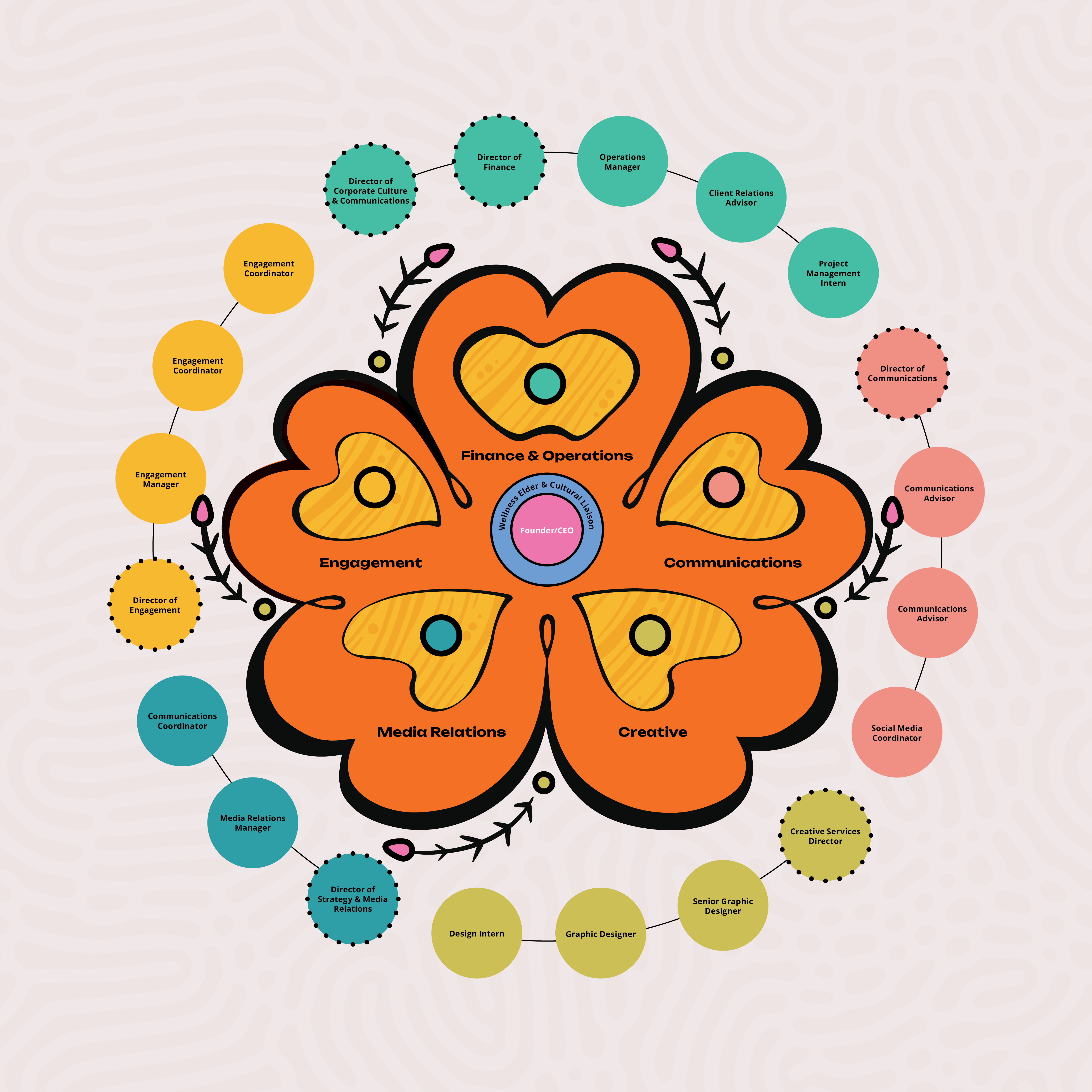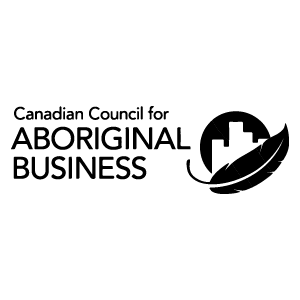As Indigenous consultants, there can be a persistent feeling of imposter syndrome. This may be due to our immense sense of accountability and responsibility of working with and for our communities. Indigenous consultants may also feel being a part of the community gives us the positionality to advocate for and amplify the voices of Indigenous communities and clients.
To make matters more complex, the Truth and Reconciliation Calls to Action have prompted many non-Indigenous people, communities, organizations, governments, and corporations to engage Indigenous consultants as part of their reconciliation journey. We are often contracted to support their internal efforts to understand their role in reconciliation and how to work with Indigenous Peoples and communities in a respectful way.
These realities prompted a team conversation about the challenge of doing this work in a good way without taking the emotional and mental labour (to do important reconciliation work) off of our clients.
One theme summed up our conversation: honouring our authority. We changed authority to agency because we believe agency better reflects our connection to positionality while authority suggests having control or power over something or someone. We added authenticity because we believe, through our approach of relationality, we are connected to our authentic selves.
We love this work
As Indigenous consultants, we engage in this work not only to be profitable, but we actually love the work we do. We love facilitating conversations, hearing stories and teachings, building relationships with new Indigenous Peoples and communities, and working with and for communities to have their voices heard. If we can turn the work we love into something that has an impact on systems and motivates change, we are going to do it.
Economic Reconciliation
If not us, then who? We want to make sure the project is done in a good way, so we commit to working with clients in a critical and relational way. Taking on these challenging projects includes ensuring clients engage meaningfully and respectfully. We are also an Indigenous owned and majority staffed agency focused on developing Indigenous talent, so the project profit is going back into the Indigenous economy.
Founded in Indigenous knowledge
Many of our staff are Indigenous and all of our work is viewed through an Indigenous lens and executed using Indigenous methodologies. In our engagement projects, we use relationality and specifically an Indigenous research methodology developed by Indigenous scholar Dr. Cindy Gaudet, called keeoukaywin: The Visiting Way. It centres relationship building through the concept of visiting and once that relationship is developed the work gets done. We are accountable to relationships and the responsibility of maintaining those relationships. This is honouring our authenticity.
Expertise
We are a team of experts within our fields. As a team, it isn’t strange for us to feel imposter syndrome, but this seems to be amplified as an Indigenous professional. We are very conscious of building up our teams and reinforcing that we are experts who need to be recognized for our skills and experience. We deserve to be in rooms where many non-Indigenous people feel comfortable. This is us honouring our experiential and community-based understandings. This is us honouring our agency.
Ensuring we are accountable and responsible to the relationships we have with Indigenous communities and clients will always be a challenge. It is something that is a journey rather than an end-point.
Relationships change. Communities change. Systems change. As an agency we interact with people, organizations, communities, and systems in different ways.To be guided by the areas discussed above is important. As we continue to grow, and more Indigenous professionals join our team, the areas we’ve highlighted may change and new areas emerge.
To continue doing this work relationally, we need to ensure we honour our authenticity and agency to walk into these spaces and ensure we are amplifying and upholding the voices of the community.




